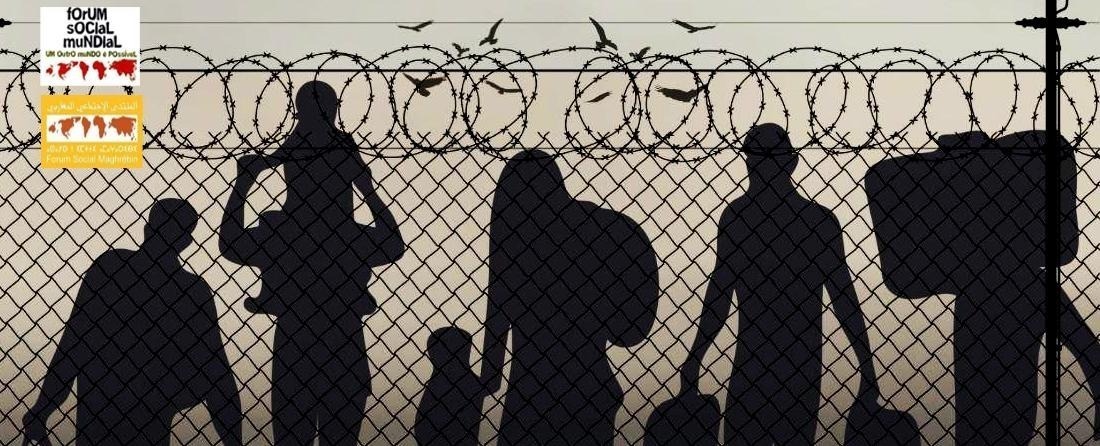A delegation of La Via Campesina will take part in the Vth Maghreb Social Forum on Migration to be held from June 23 to 25 in Nador, Morocco. The forum is a collective space with social organizations with which our movement will build common steps around the Migration Solidarity Pact.
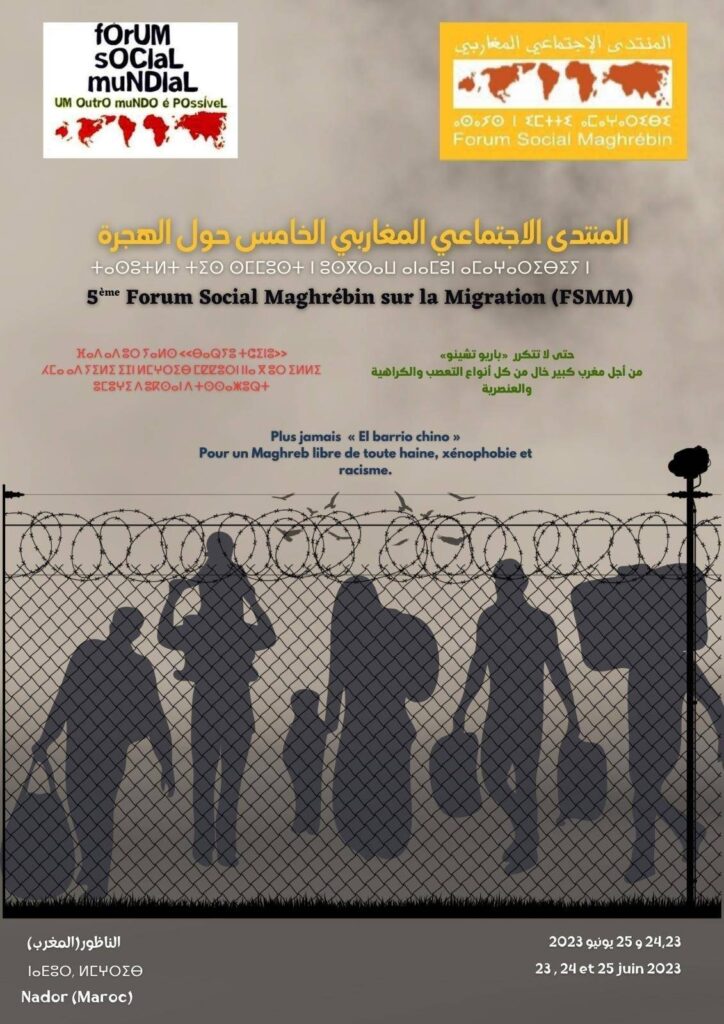
The forum will be held in the border city of Nador (Morocco) which borders with Melilla (city occupied by Spain), a chaotic territory with laws of both countries as it is a transit zone for thousands of people coming from the African continent towards Europe. Last year, the area experienced the worst border massacres in recent times, about 3 dozens of migrants were brutally killed when they were trying to cross a border fence. The governments of both countries are yet to take the responsibility for this tragedy.
The aim of the forum is to continue to denounce this tragedy and many others, as well as the daily murders of migrants in this region and in the Mediterranean Sea. It will also continue to defend the rights and dignity of migrants and rural workers.
At the same time, the Caravana Abriendo Fronteras, a network of organisations and collectives demanding a dignified transit for migrants and the right to freedom of movement, will be present on 24 and 25 June in Melilla, on the other side of the border, to demand justice on the first anniversary of the massacre at the barrier.
We migrate in a world that takes advantage of our existence and violates our rights
For our movement, this event is a result of the historic struggle, of which peasants and rural workers are part, against forced displacement and other types of migration from rural farms in many parts of the world. The Migration and Agricultural Workers Collective of La Via Campesina has developed collective feelings, voices and actions to support the international struggle for the rights of migrants and rural workers.
The current situation shows us the harsh realities facing migrants and the violation of human rights. Structural racism and global crises force them to go through very difficult times that put their lives and those of their families at risk. This reality is very similar to that faced by many who are forced to abandon their lands, territories and cultures, particularly in regions where poverty is structural, where global warming is a ferocious threat and where war and political conflict also have serious consequences.
Many people who migrate end up working in highly precarious jobs, such as wage labour in the agricultural fields of Europe, North America and in the rural areas where they live. Although they continue to perform the noble role of feeding and caring for the population, this happens under poor working conditions (poor housing, healthcare, below living wage, etc), a clear violation of basic rights. The neo-colonial system not only displaces them by seizing their land, it also subjugates them in “slave” labour in order to continue supplying the major food and commodities markets.
Despite this, it is the peasantry itself that must raise its voice higher than those who want to speak for them. It is a huge challenge within the peasant movement to make its own voice heard and felt beyond government and solidarity organisations.
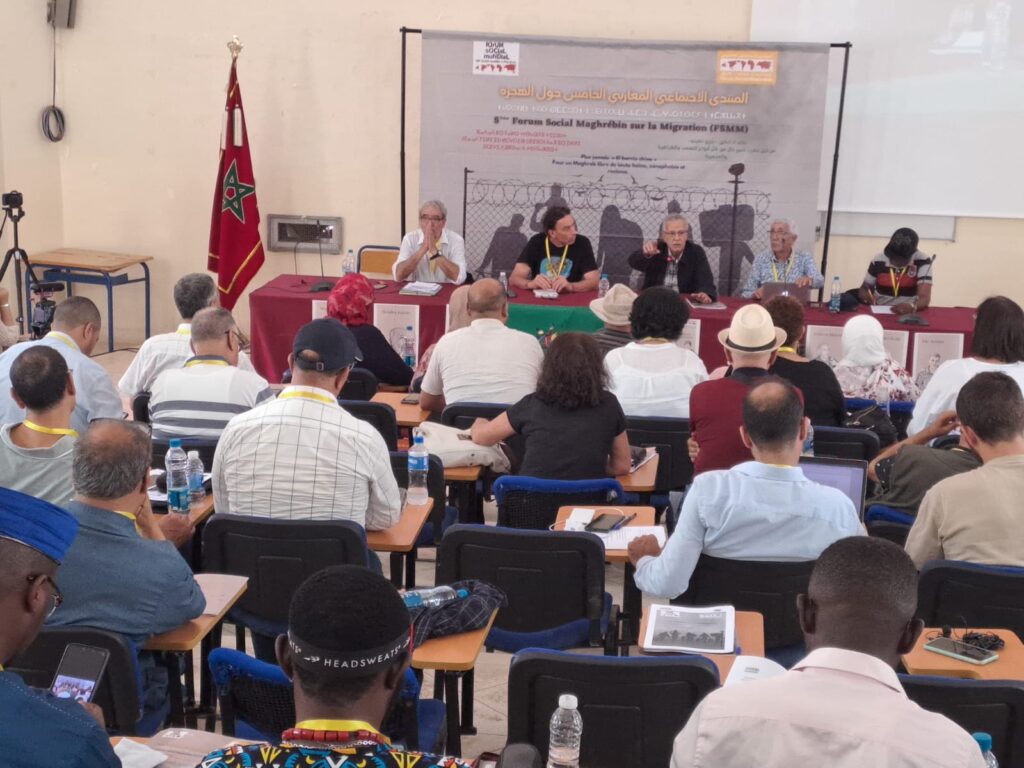
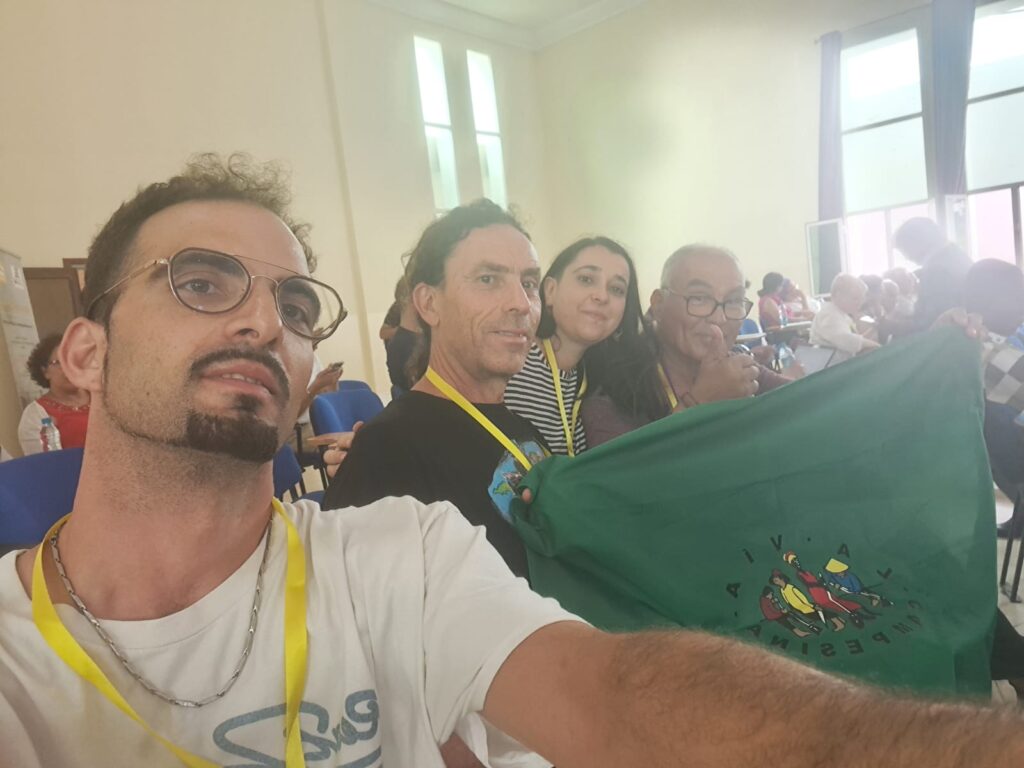
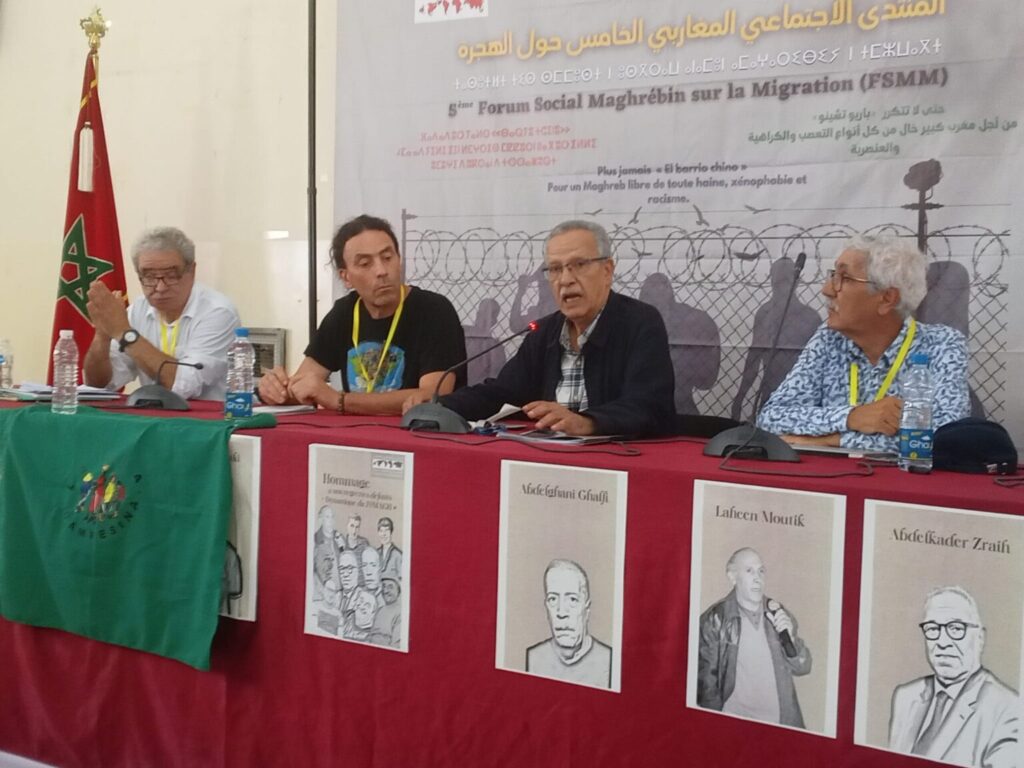
A brief look at the reality of migrants in different territories around the world
The Melilla massacre is far from isolated. Below are some reports from our member organizations:
A dramatic sinking of a fishing vessel carrying migrants off Greece occurred on the night of 13/14 June 2023, killing at least 82 people and hundreds are still missing. The survivors reported that 500 to 750 victims from Egypt, Syria, and Pakistan, including many women and children were aboard the ship. What happened in the Greek Sea is part of a long list of tragedies that constantly occur in the Mediterranean Sea. According to UN reports, in the first quarter of 2023 alone, more than 400 migrant deaths have already been reported in the area. Despite this, many EU governments are implementing anti-migrant regulations and laws. For instance, in UK, new migration policies systematically tie farmworkers to their employers exposing them to exploitation.
The ongoing crisis at the US/Mexico border has reached alarming proportions, with the situation continuing to deteriorate. Beginning May 12th, more stringent measures have been implemented by the border authorities, exacerbating the challenges faced by migrants. One significant development is the increased frequency of deportations to migrants to their countries of origin. These measures, aimed at addressing the complex immigration issue, have significant implications for the individuals involved and contribute to the overall severity of the crisis.
The situation is critical, particularly impacting Haitians who are most affected especially women and children. In the northern region of Mexico, over 800 migrants have disappeared. The crackdown on migration has escalated, turning the border into a battleground teeming with military and paramilitary personnel, while humanitarian organizations often appear subservient.
Honduras, a transit country for migrants, the situation is deteriorating, compounded by discrimination, forced displacement, kidnappings and deaths. Furthermore, there exists a distressing presence of institutionalized repression that has been negotiated with the United States. It is very difficult for migrants to obtain a US visa as the application requirements are very stringent (high visa fees, process is long and difficult).
The southern zone of Chile is experiencing a worsening situation due to the growing influence of ultra-right-wing political sectors. This has led to the implementation of anti-migratory policies and a crisis at the northern border with Peru. Migrant mobilizations have taken place, but repressive policies have intensified. Despite a center-left government, other political parties have pushed forward the anti-immigration laws, posing further obstacles.
Bangladesh is home to an overwhelming number of Rohingya migrants, with approximately hundreds of thousand residing there. The majority of migrants are women and children. The Asian country experiences the most cases of migration, many of them destined for trafficking and some take precarious work in large factories which supply the big global retailers.
Tunisia, also a temporary transit country for migrants on their journey to Europe via the Mediterranean Sea, implemented neoliberal policies over the past 12 years. The country has imposed visa restrictions on several African countries with lower gross domestic product (GDP) than Tunisia to limit the inflow of migrants because this created a tense environment between the Tunisian population, most of whom are jobless, and migrants from Sub-Saharan Africa over employment. Migrants endure severe exploitation under deplorable living conditions. European countries are pressuring Tunisia through blackmail tactics to gain control over migratory flows, further exacerbating an already delicate situation.
Out of Respect for the Full Rights of Rural and Migrant Workers – Peasant Rights NOW!
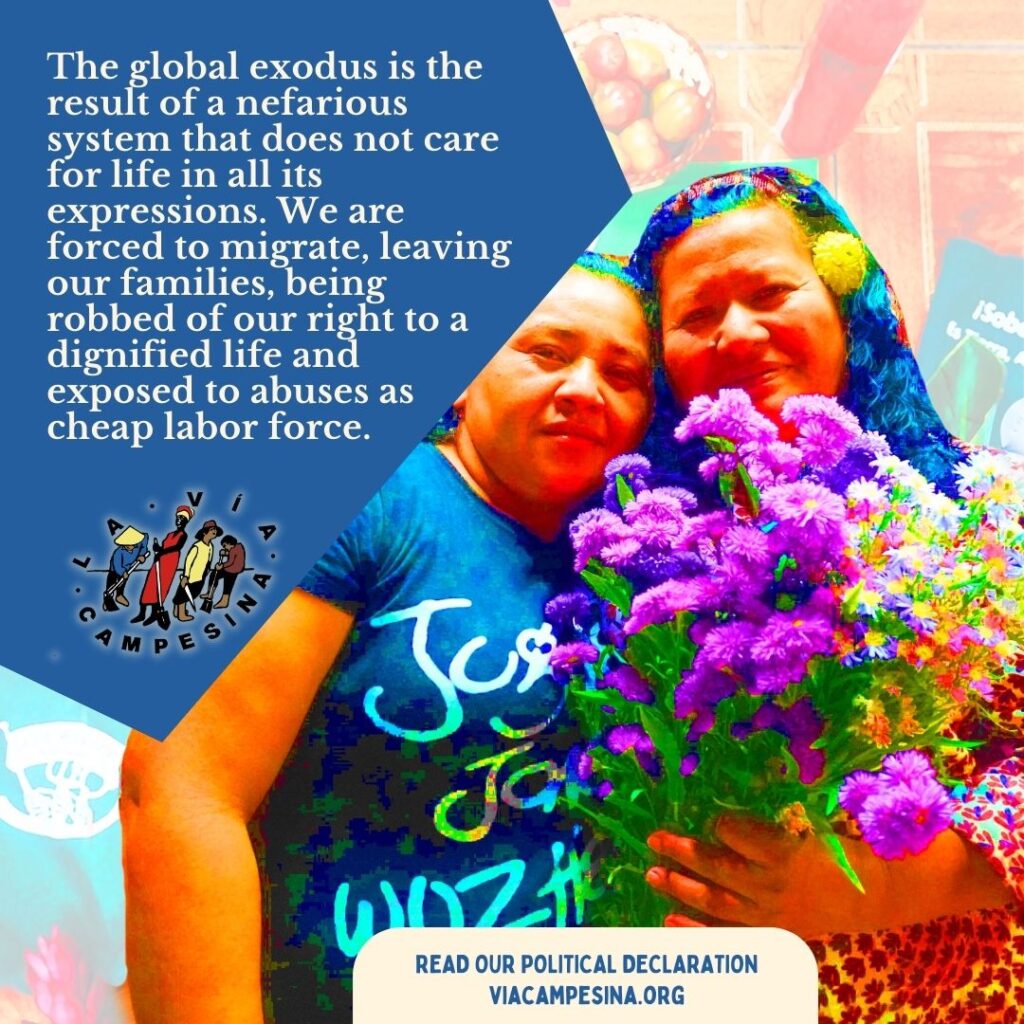
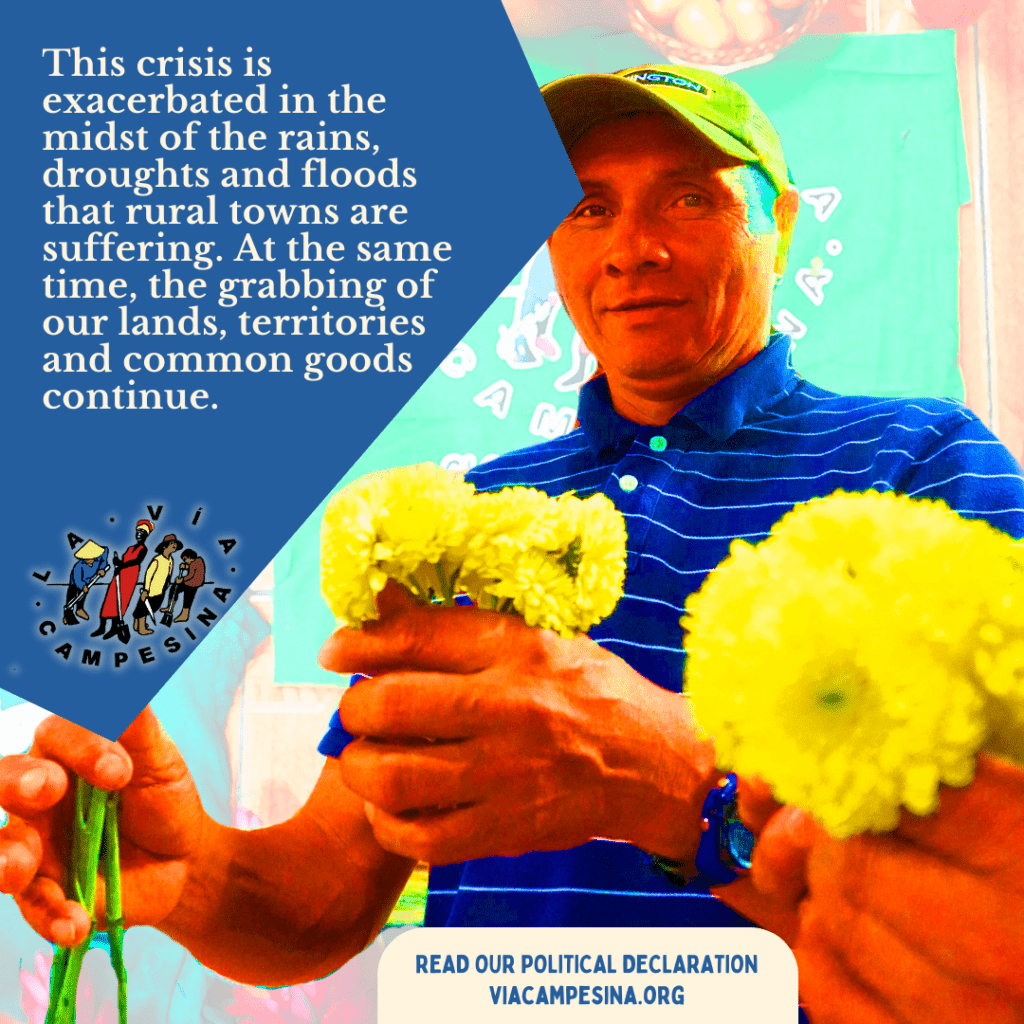
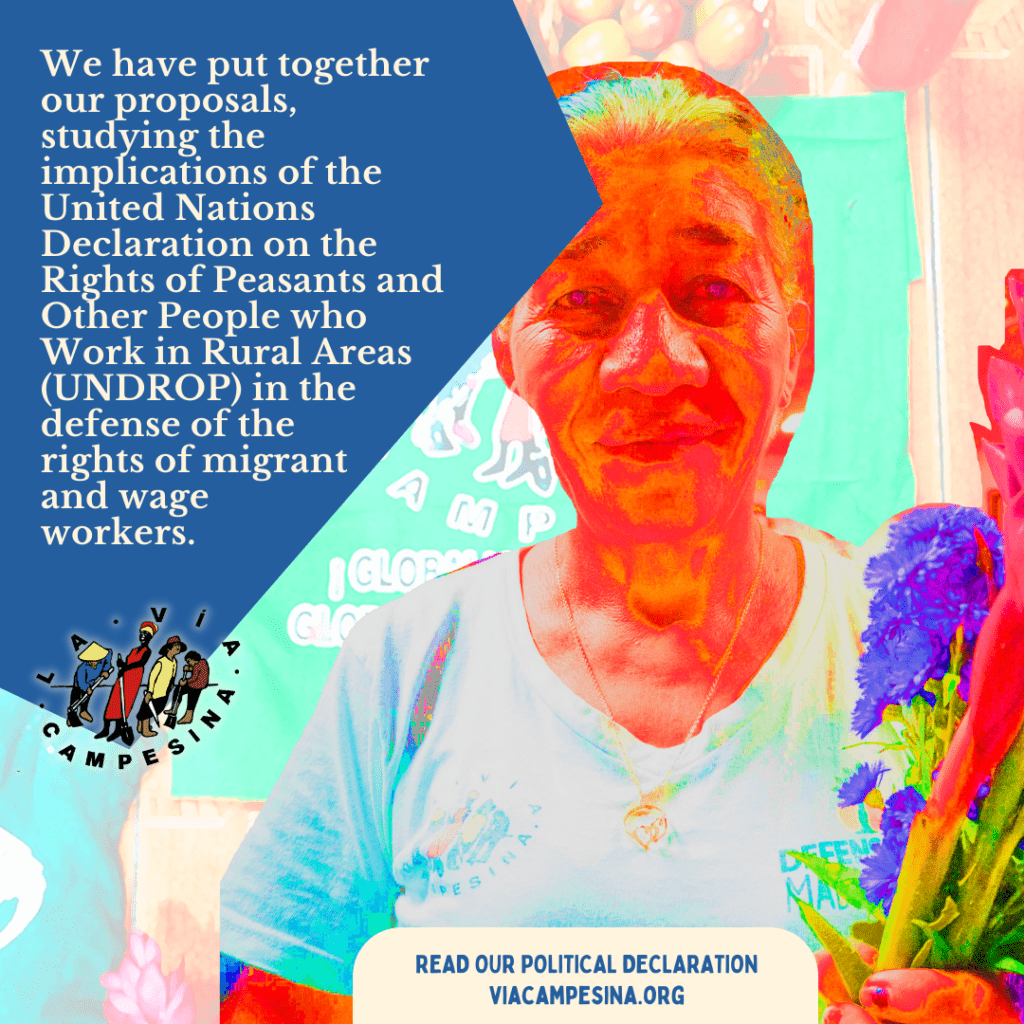
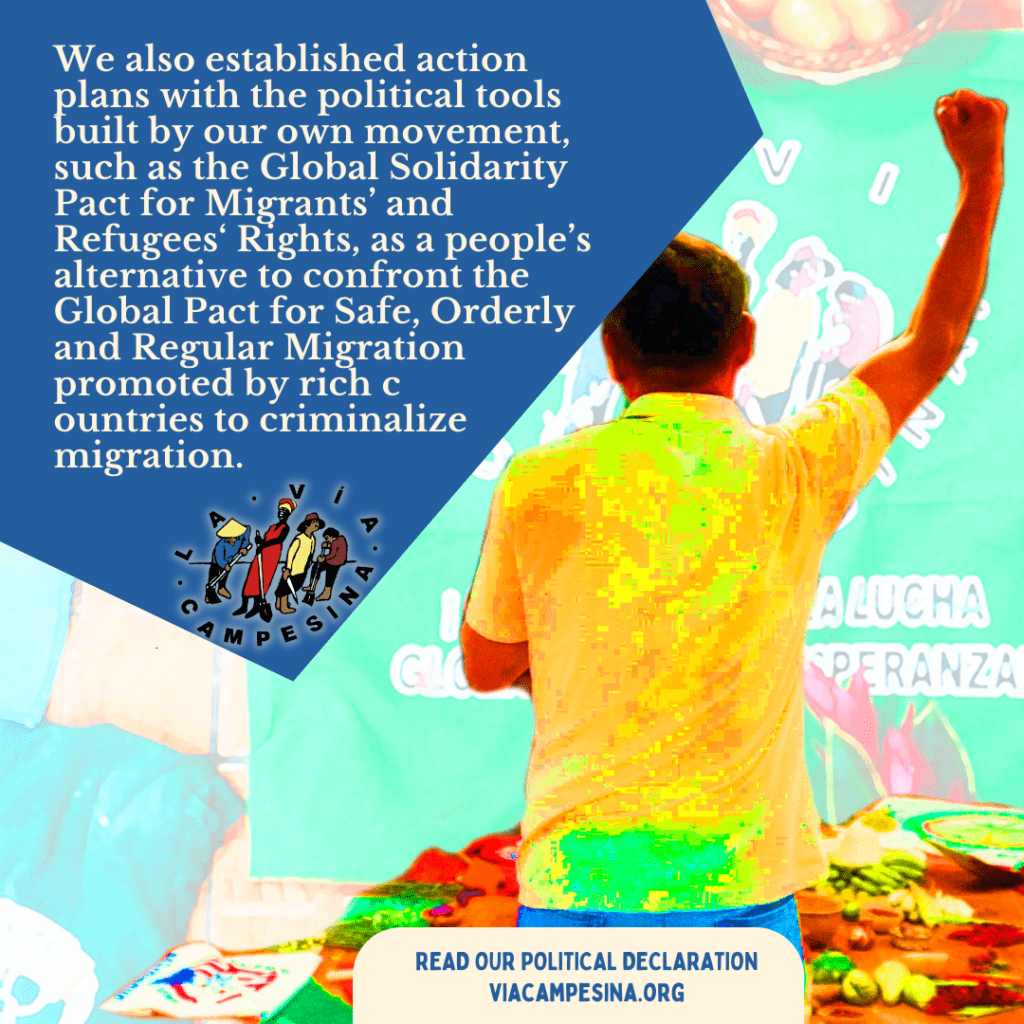
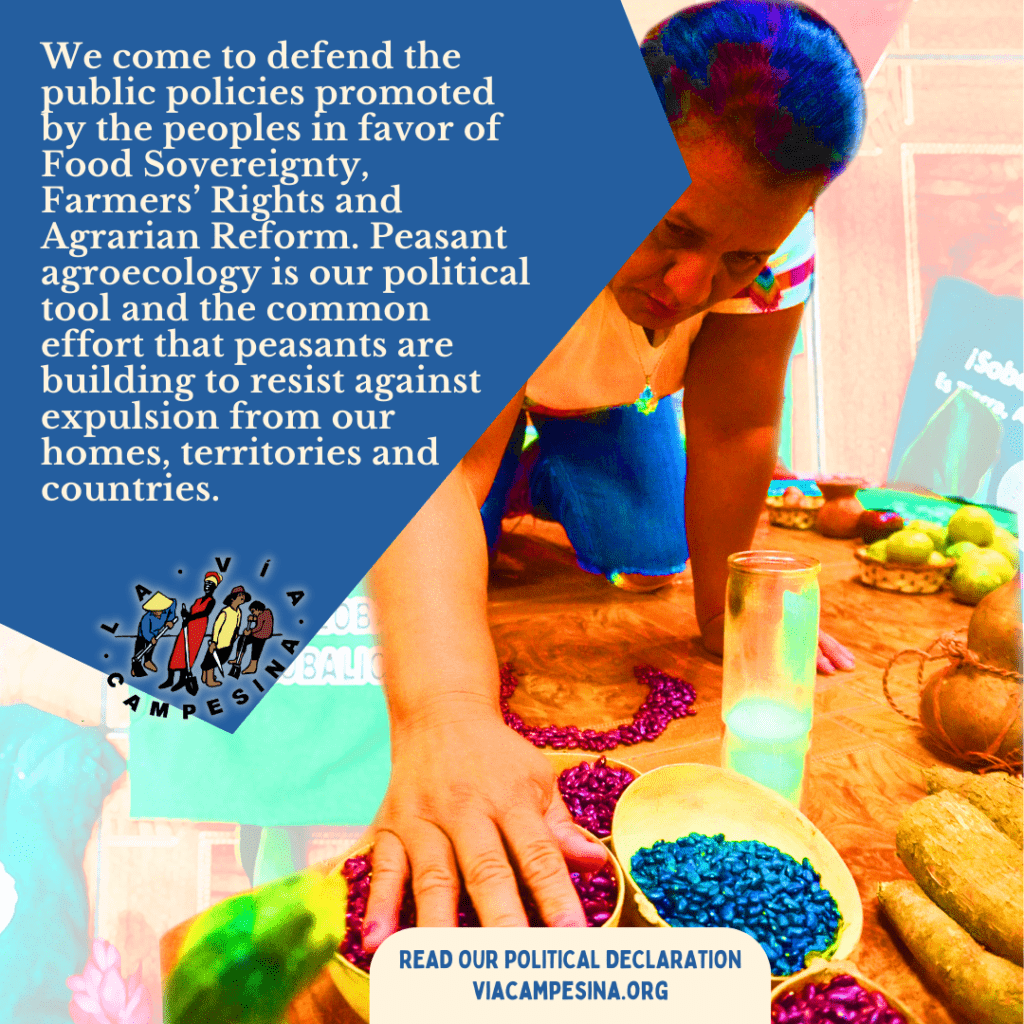
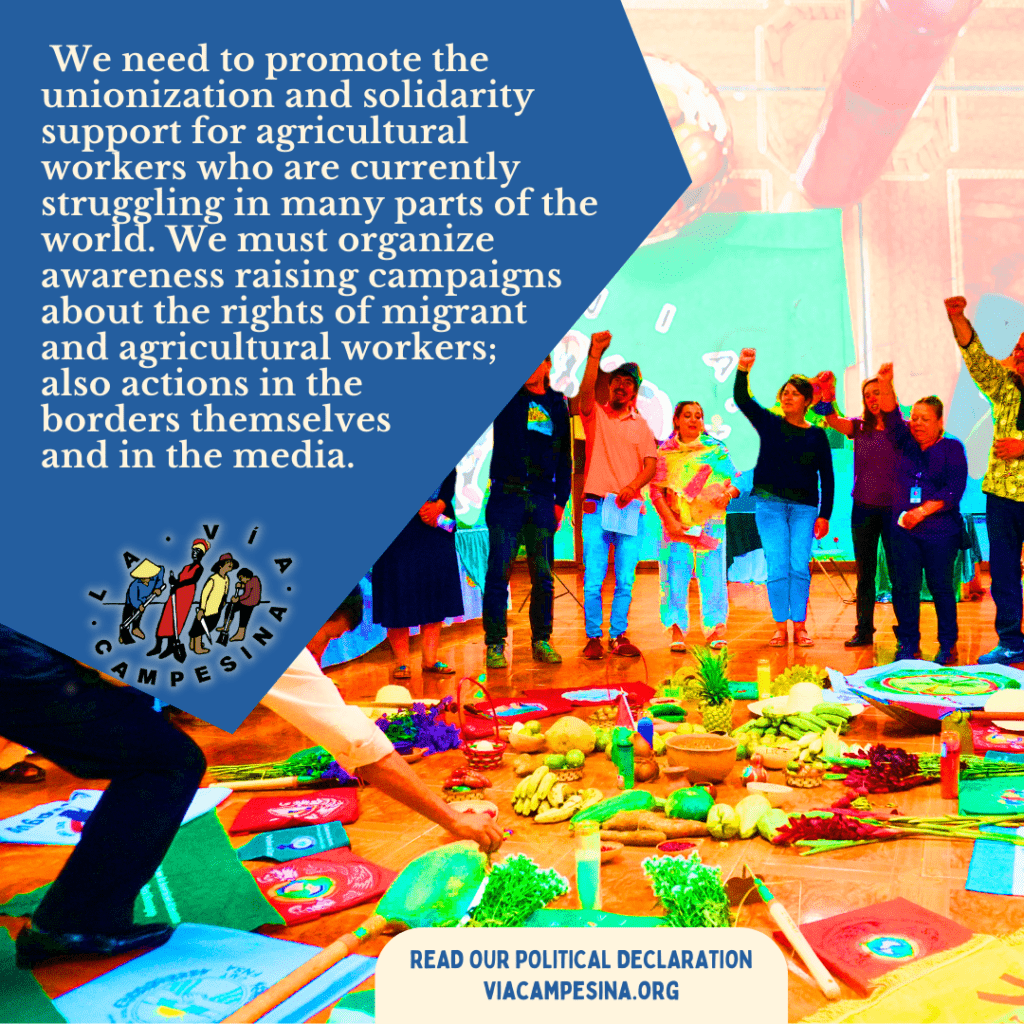
Follow and share this important information
Follow the online transmission of the forum: https://www.facebook.com/watch/live/?extid=CL-UNK-UNK-UNK-AN_GK0T-GK1C&mibextid=2Rb1fB&ref=watch_permalink&v=920907882305939
Caravane: https://abriendofronteras.net/
More contacts and information in press@viacampesina.org

